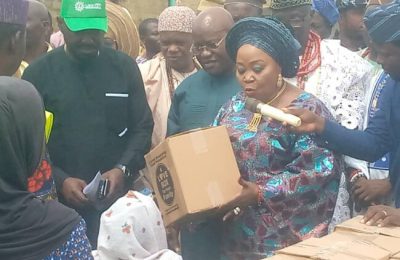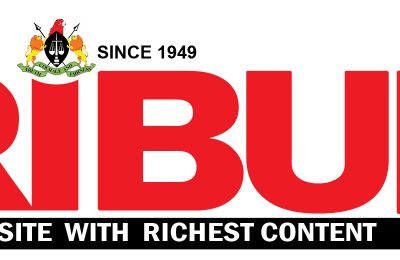In this interview with Sade Oguntola, CEO of Remedial Health, Mr Samuel Okuwada, delved into issues of the surging cost of medication in Nigeria, use of technology to ensure access to quality medicines, and what the government can do in the short term to alleviate the problem.
How did Remedial Health start in Nigeria?
Remedial health is Pharma tech, a merging of my passion and what I studied — a pharmacist by training, a software engineer at heart, as someone who learned to code when I was young. After university education in 2014, I returned to Nigeria and started a pharmaceutical import business that was producing medicine in India and importing it into Nigeria to sell. Fast forward to the COVID-19 period, within about a few days of the lockdown, especially in Lagos, pharmacies and hospitals ran out of medications to give patients, because the markets could not operate. The government could not allow any market to operate during COVID-19 so that the virus would not spread, even faster. So within two or three days of the lockdown, pharmacies and hospitals were visiting the website to find our contact information and calling directly to ask if we could supply them medications. That wasn’t our business model, because we import and sell to wholesalers. Initially, we resisted because, by our model, we sell hundreds of cartons of medicines at once. But they were asking to buy a few packs. By the time we had gotten about six to seven calls within a few days, it was quite clear that there was a problem. There were no medicines for people to take. So we started making those supplies ourselves. That was how Remedial Health started off; we just wanted to help get medicines faster from suppliers directly to retail.

Today, Remedial Health is a business-to-business procurement platform. We usually refer to ourselves as the operating system of pharmacy. What that means is that if you want to open a pharmacy today, all you have to worry about is the shop. Every other thing that you would need, including the medicines and inventory financing software, Remedial Health will provide. We also help them collect payments, which is the reason we refer to ourselves as the operating system for pharmacies in Africa.
How do you ensure fake drugs are not sold to your clients?

Counterfeiting is a global problem; it is also very much an African issue. The World Health Organisation (WHO) said that 30 percent of medicines sold in Africa are counterfeit. NAFDAC, in a release, said the figure for Nigeria was 40 percent. That means chances are that four out of 10 packs of medicine you buy might be counterfeit, if the purchase is made randomly in the market. That is part of the problem we’re solving with Remedial Health. We are guaranteeing our customers, in this case, pharmacies and hospitals, and even now, state governments, that whatever medicine they get from us is 100 percent genuine.

We can guarantee that because we go directly to the source to buy; we are not buying from any middleman. And then, we make deliveries from our own facility, where their condition of storage is tracked on an hourly basis. That way, for every pack of medicine we sell, we can assure customers that 100 percent of what they get is genuine.
Is that not at an extra cost to consumers of these drugs?
No, it doesn’t translate to an extra cost to consumers. One problem in the pharmaceutical supply chain in Nigeria is too many middlemen. Even when quality medicines are imported, they are sold to the markets and typically go through about three middlemen before they get to the pharmacy. If an importer brings in a container of medicines that is worth N200 million, it will be sold directly to those that can buy large quantities, maybe a million naira worth of medicines at once, and not to a pharmacy that requires N10,000 or N20,000 worth of medicines. They are in the chain to make money. We are cutting out all of that. Instead, the medicine moves straight from the manufacturer to the pharmacy, and then to the customer or patient.
So, you will find that we are typically cheaper in most cases, up to 20 percent cheaper than going the normal route of travelling down to the market to buy the product yourself. Plus, again, we track our medicines, so they are 100 percent genuine.
Can individuals order and have it delivered to them in case of an emergency?
Today, we don’t sell directly to patients but to pharmacies and hospitals, who then sell to patients. However, we do take emergency orders. Typically, like in Lagos, we process around nine emergency orders on some days. These are mostly for surgeries taking place that day. When ordering through the platform, you can say this is an emergency order. It bypasses our usual process of doing the pick-and-pack process, waiting for it to go out with a bus to be delivered. It goes straight to the dispatch rider with a bike, who will get it down to your place within two hours, at least anywhere within Lagos.
However, in a situation where an individual requires a particular drug, such could walk into any pharmacy and let them know that he/she needs the product. If they don’t have it, you can ask them to speak to Remedial Health to help source the medicine. Even if it is not on the market, we will try as much as possible to get it from the supplier. And we do that for a number of medicines every day.
How can a pharmacy with a direct linkage with Remedial Health put in a request and be identified?
We have over 6,000 pharmacies on board today. So, chances are that you will walk into a pharmacy that knows about Remedial Health already. All you need to say to them is that they should speak to Remedial Health about it and we will source it for them. The problem of the non-availability of any medicine is either because of one or two things: this product isn’t massively produced or imported, or it’s a case of its price. It can be so expensive that the pharmacy cannot afford to keep it on the shelf. Making such a request is not going to make it come at a higher cost. We are in the market not to add to the pain but to alleviate the pain in the market.
Comparing the cost of medicine six months ago with the present time, most medications have increased in cost by over 200%, what is responsible for this?
I will give two figures for this: on the one hand, you have medicines made by multinational companies like GSK and Pfizer, whose prices on average have gone up about 200 percent. Then, the group includes medicines that are imported into Nigeria from countries like India and China as well as those manufactured here in Nigeria, whose prices have also gone up by about 40 percent on average. These increments occurred within the past six months.
Now, there are a number of reasons why this has been so. The multinational pharmaceutical companies are leaving the country. About two months ago, GSK said it was leaving and Sanofi too has said it is leaving as well. What that means is that Nigeria is no longer a priority for these companies. They were also leaving because doing business in Nigeria is not particularly easy. They haven’t been able to get dollars to repatriate back to their home countries for many years. Then, there is the general increase in the cost of everything in Nigeria at the moment, starting from petrol, electricity and so on, and all these make the cost of production very high. Of course, the high dollar exchange rate needs to be factored into the price of the products that we buy.
Again, that goes back to why we are so reliant on dollars. Today, 85 percent of the medicines that we sell to Nigerians are imported. They are already manufactured and ready for sale. The remaining 15 percent are manufactured in Nigeria, but all of the ingredients used are imported. That means we are completely reliant on importation and, therefore, the cost of medicines is determined by the exchange rate for dollars, the price of shipping and customs duty charges, among others.
Nigeria Customs Service, now a revenue-generating agent for the government with a yearly target, also finds ways to extort as much money as they can from importers. As an importer, you also pass that cost on to your clients. So, it is a combination of these things that determines the eventual price of medicine in Nigeria.
Until we make some real, decisive decisions as a country, prices of medicines will remain high. Until we are manufacturing the APIs rather than formulating these drugs from ingredients that were imported, we will continue to be reliant on the dollar-versus-naira price to determine how much medicine will cost.
Something that happened during the COVID-19 pandemic that I was hoping would make African countries learn the importance of local pharmaceutical manufacturing was when the governments of India and China placed a ban on the export of pharmaceutical products. It was so clear then that reliance on pharmaceutical importation was a national security issue and that something needed to be done to rectify it. But we are still 100 percent reliant on the importation of pharmaceuticals.
How can Nigeria deploy technology to ensure accessibility and affordability of medicines, particularly now?
In Africa, we are very entrepreneurial and private individuals like Remedial Health are still moving forward to solve problems. We are using technology to ensure that, at the tap of a button, there is access to genuine medicines. Unfortunately, technology is not the answer to all the challenges we face daily, like bad roads, high cost of gasoline and diesel, excessive maintenance costs for trucks, and security agents extorting trucks on the road. The cost of doing business is just too high. And it’s not technology that will solve it; rather, it is decisive actions from the government that will put a stop to all these.
Also, the government needs to create policies and the environment for entrepreneurs to manufacture Active Pharmaceutical Ingredients (APIs) in Nigeria. For example, there can be policies that offer zero duty for the importation of ingredients to make APIs, dollars for the importation of required machines for API manufacture, and industrial hubs with assured power supply and land. Again, that is not technology. Certainly, technology helps, but it is not everything that is needed to make things work.
Also, there are things that they can do in the short term to improve access to essential medicines, like making essential medicines attract zero duty for, say, six months. It will dramatically make the price of medicines fall. They can also focus on long-term things to cut the cost of medicines, like the repair of road networks across the country.
READ ALSO FROM NIGERIAN TRIBUNE







